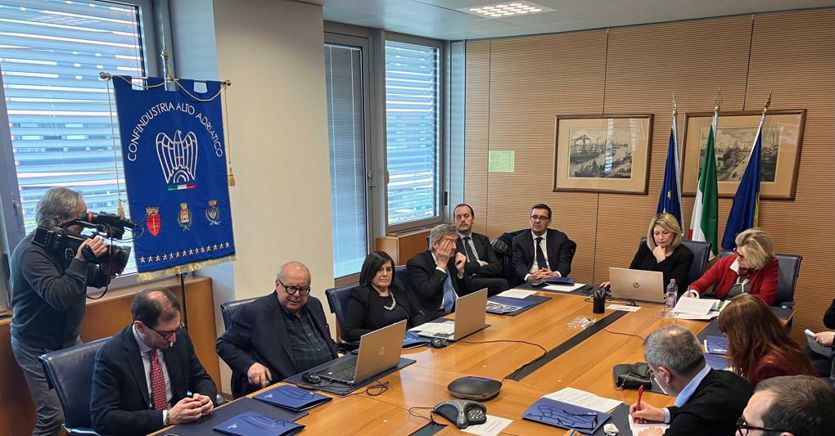Listen to the audio version of the article
Quality training for 250 young people from Ghana, with the concrete opportunity to then find an equally high-quality job in Italy. In Friuli Venezia Giulia in particular, where the Ghana Project was born, developed in a year of work by Confindustria Alto Adriatico. On 6 April at 10.30 the President of the Republic Sergio Mattarella, on an official visit to Africa, will inaugurate this collaboration started between companies from the North East – but membership requests are already arriving from other regions – and the training center professional run by the Salesians in Accra, the capital and main city of Ghana.
The main partner of the operation is Umana, the employment agency, but the Region and the unions were also involved.
In essence, the first participants will be selected in the African country (with the aim of increasing the number over the years): for them two/three months of training with technical courses relating to the most requested roles (welding, forklifts, but also cooking and catering) and together with Italian language courses. The second phase, in Italy, includes a further training and acclimatization phase, from both a technical and linguistic point of view, lasting 30 days. The guarantee is that of a subsequent employment contract with an initial duration of 12 months, with all the remuneration and regulatory protections provided, and with the guarantee of available accommodation, made available with the support of the employers, who have accepted this clause to be part of the project. Ghanaian workers in Italy will find, in addition to housing and work, the support of local and regional institutions, as well as that of compatriots’ associations such as the Ghana Nationals Association.
Why Ghana? «Because it is a community that has historically been firmly present in our areas, where it has reached 20% of the resident quota» explains Michelangelo Agrusti, president of Confindustria Alto Adriatico, who recalls how in the past companies such as Electrolux – a washing machine factory in Porcia , Pordenone – recruited 500 Ghanaian workers at once, but also how at the 2006 World Cup the Italy/Ghana match, seen from Pordenone, almost looked like a derby. «This project is designed for an area with a high manufacturing rate, which for years has complained of a chronic and significant shortage of manpower – underlines Agrusti – But it is an initiative with clear social and ethical, as well as economic, contents. We are aiming for full integration of these workers, and we do so based on the experience of these years: today the children of those who arrived here in the past attend schools and oratories, and even in the churches there are Ghanaian parish priests”.
The regulatory basis is the Cutro decree, which allows quotas of immigrants to arrive outside the established parameters if adequately trained in the country of origin. It is no coincidence that the inauguration of the Confindustria Alto Adriatico Academy in Ghana will see the presence of President Mattarella: «It is an ambitious project in which we wanted to invest – underlines Maria Raffaella Caproglio, president of Umana Spa – Thanks to our participation they will be managed some key elements such as the meeting between job supply and demand in Italy, involving Ghanaian candidates through selection activities, technical and civic-linguistic training and job placement with a temporary agency contract. Through this initiative, which involved Ghanaian and international partners, including the Salesian Province for South West Africa and the VIS (International Volunteering for Development, ed.) with whom we will sign a memorandum on April 6th and to whom goes our thanks, the companies involved will have an opportunity to respond to the difficulty in finding specialized personnel. To maintain the competitiveness of supply chains in a time of demographic crisis like the one we are experiencing, it is important to also aim for quality immigration.”
